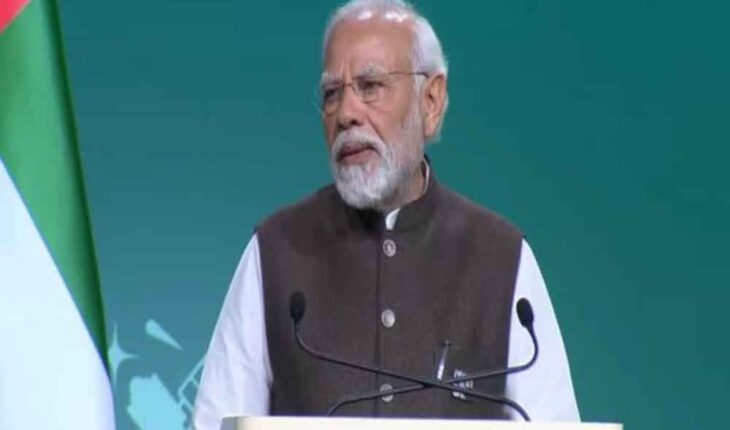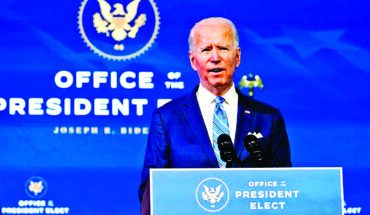New Delhi : Firmly stating that climate action must be based on equality, Prime Minister Narendra Modi said on Friday that India achieved emission intensity-related targets 11 years ago.
Speaking at the inaugural session of a high-level segment of the United Nations Climate Change Conference (COP28) in Dubai, Modi said, “India aims to reduce the emissions intensity of its GDP by 45 per cent by 2030. We have decided to increase the share of non-fossil fuels to 50 per cent.”
“Today, India has presented an excellent example of the balance between ecology and economy before the world. Despite India being home to 17 per cent of the world’s population, its contribution to global carbon emissions is less than 4 per cent. India is one of the few economies which is on the path to meet NDC (Nationally Determined Contribution) targets.
“India is committed to the UN Framework for Climate Change process, and that is why, from this stage, I propose to host the COP33 summit in India in 2028, ” Modi said.
Modi, who also participated in group photo session with other world leaders at the COP28 summit, in his address in Hindi expressed gratitude for the continuous support to issues like climate justice, climate finance and green credit raised by him.
Earlier, Modi was received at the venue of the COP28 summit by UAE President Sheikh Mohammed bin Zayed Al Nahyan and United Nations Secretary-General Antonio Guterres.
During the summit, Modi met UK Foreign Secretary David Cameron and former Britain Prime Minister Tony Blair and admired their passion to work towards sustainable development.
Interacting with Ethiopia Prime Minister Abiy Ahmed Ali on the sidelines of COP28, Modi wrote on X, “India values the longstanding friendship with Ethiopia, a relationship enriched by strong mutual cooperation.”
The two-week United Nations Climate Change Conference opened on Thursday with a resounding call to accelerate collective climate action.
The conference is taking place in what is already known to be the hottest year ever recorded in human history, as the impacts of climate crisis wreak unprecedented havoc on human life and livelihoods around the world.
COP28 in Dubai from November 30 to December 12 is a decisive moment to act on climate commitments and prevent the worst impacts of climate change.
The UAE has the Presidency for COP28, with Sultan Al Jaber, Minister of Industry and Advanced Technology, as this year’s President.
This year’s COP marks the conclusion of the “global stocktake”, the first assessment of global progress in implementing the 2015 Paris Agreement.
The findings are stark: The world is not on track to limiting temperature rise to 1.5-degree Celsius by the end of this century.
It does recognise that countries are developing plans for a net-zero future, and the shift to clean energy is gathering speed, but it makes clear that the transition is nowhere near fast enough yet to limit warming within the current ambitions.




